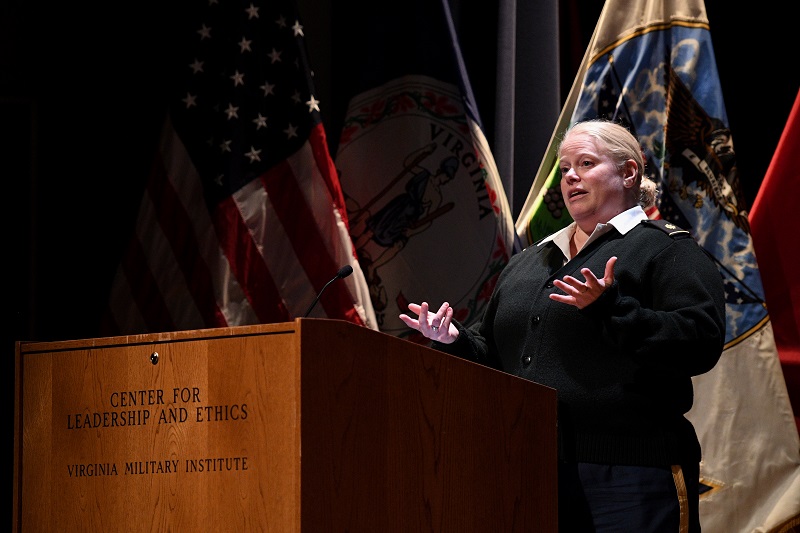Forging 21st Century Leaders: Strategic Plan 2024-2034
Forging 21st Century Leaders
Prepare Exceptional Leaders Initiative No. 1
GOAL: Execute the premier leadership development program in the nation, and develop a Corps of Cadets that is mentally tough, academically astute, physically fit, and for which the Honor System, Regimental System, Class System, and Rat Line are the foundational backbone.
Embarking upon the VMI leadership journey is a courageous undertaking for any new cadet.
It’s a challenge not meant to be easy, and our system is time tested. Forging 21st Century Leaders seeks to strengthen and supplement this leadership journey to produce strong future leaders for the nation and commonwealth.
Mark Shelton II ’24,“I continually seek out leadership opportunities and place myself in challenging situations to grow as a leader. I think that’s what VMI is all about. I think it’s about pushing yourself, challenging yourself, trying to grow as a person, trying to grow as a leader, to ultimately be prepared for what faces us once we graduate.”
class regimental commander
Objectives: Guiding the path forward
1
Teach, coach, mentor, guide, and direct cadets through the VMI training model to help them develop the knowledge, skills, and dispositions necessary to become effective leaders.
Our country needs leaders of character now more than ever. VMI serves this need by developing men and women who think and act ethically, lead by example, inspire confidence, and are willing to work hard to achieve their goals. They endure rigorous training that promotes resilience and perseverance. Opportunities for cadets to hone their leadership skills are many and varied. Examples include participation in club sports, extracurricular activities, academic clubs and honor societies, Center for Leadership and Ethics programs, and the regimental and class systems. Similarly, through NCAA athletics, leadership opportunities abound on the field of competition where individual and team skills are demonstrated. Our unique method of education, symbolized by a three-legged stool (academics, military, athletics), has produced Rhodes Scholars, numerous military leaders, and captains of industry. We intend to continue this great tradition and find ways to improve upon it. We strive to elevate VMI’s approach to leader development to world-renowned status.
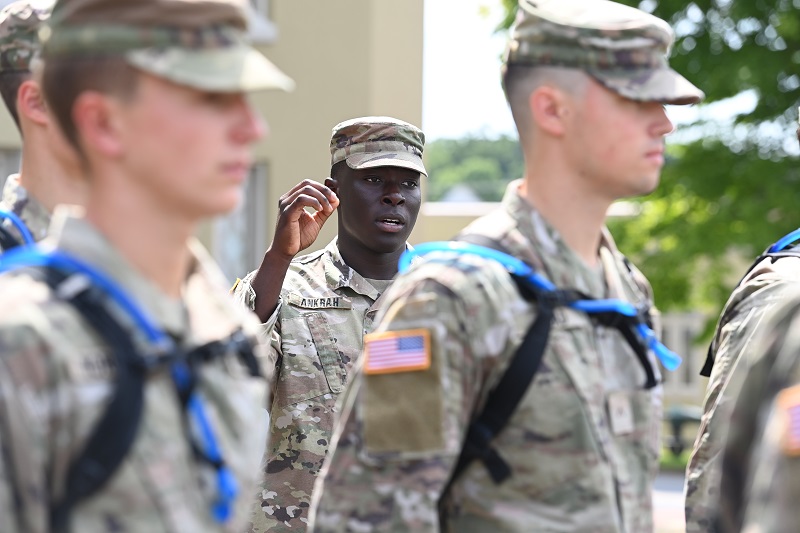
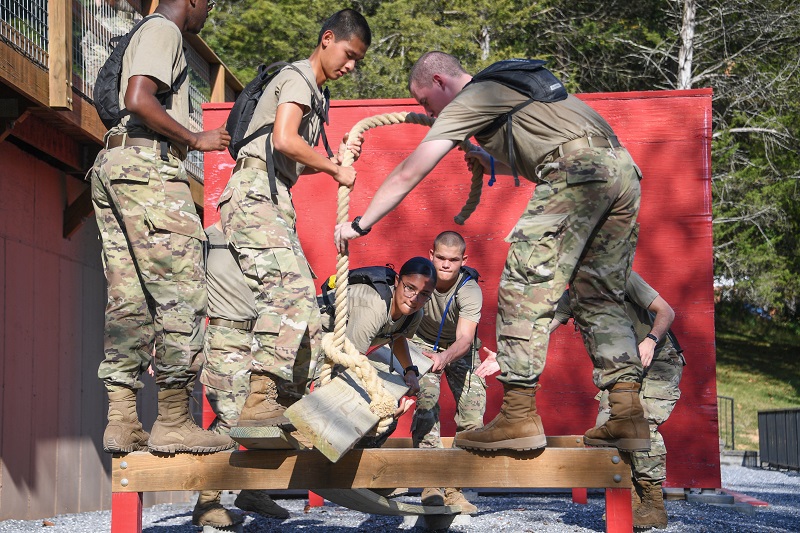
2
Ensure cadets receive mentally and physically challenging experiences that lead to meaningful personal and professional development.
Our curricular and co-curricular rigor at VMI is unmatched. Cadets are required to complete a holistic academic experience and participate in physical training and athletic programs designed to challenge and develop them. To provide an optimal experience, we must balance a schedule that prioritizes the essential functions of cadet daily life that results in individual and collective health and wellness. To this end, we intend to optimize the academic and physical training schedules in ways that best promote cadets’ personal and professional development. In this pursuit, we will work to ensure that the learning experiences we provide are mentally and physically demanding, and importantly, designed, implemented, and evaluated in alignment with cutting edge research. Increasing Summer Transition Program participation will also play a key role in achieving this objective.

3
Prepare cadets for a wide variety of opportunities for service upon graduation, such as commissioning in the U.S. armed forces, employment with governmental agencies, or private industry.
Cadets are required to participate in ROTC during their cadetship. For many, ROTC leads to a commission into the armed forces, helping us reach our mission to produce leaders who are prepared to defend their nation in times of peril. This form of service is, and will remain, an Institute priority. We also recognize service comes in many forms, including employment as a civilian in a federal or state agency, or in the business sector. For those who do not have the benefit of summer military training, we can augment their experience with internships, undergraduate research, and study abroad.
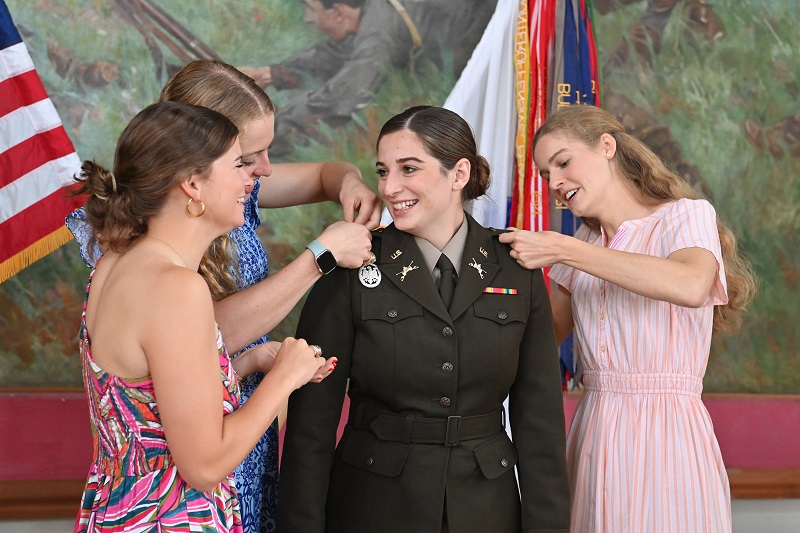
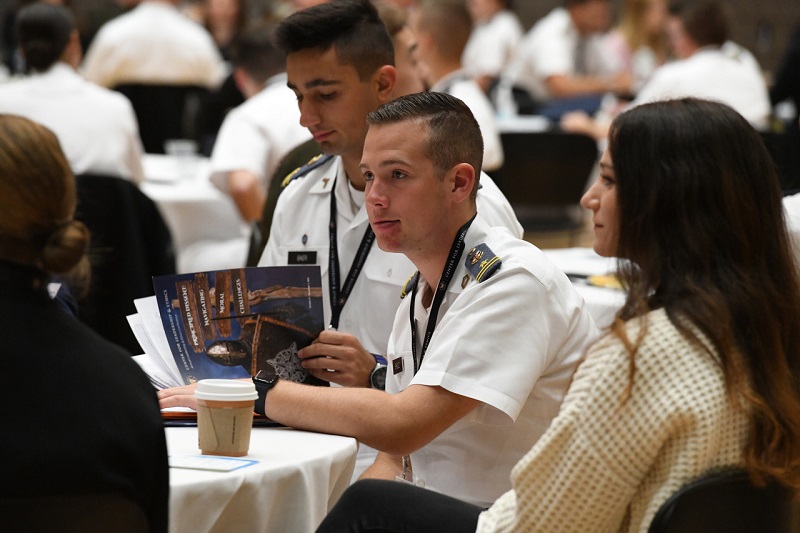
4
Increase opportunities for the VMI community to serve, debate ideas candidly and civilly, and nurture esprit de corps.
Experiential learning is a key component of leadership development. This type of learning provides cadets with meaningful ways to integrate their knowledge, skills, and experience. It also provides opportunities for cadets to engage with individuals from diverse backgrounds and creates opportunities for cadets to assume leadership positions and practice their skills. Given the importance of these experiences, we intend to expand current opportunities by, among other things, increasing leadership funding support and the number of leadership experiences, events, and activities offered by the Center for Leadership and Ethics.

5
Explore the value-added opportunity of expanding the Institute’s exceptional leadership training model and reputation in new and innovative ways.
We have an exceptional leadership development model that prepares leaders for all walks of life. Questions abound about whether this model should be expanded to a broader group of aspiring leaders, and if so, how would its design and implementation best align with and strengthen our mission. Thus, we need to determine if expansion into areas like undergraduate research and micro credentials makes sense, and if so, how it should be undertaken. Additionally, leveraging existing initiatives, such as the Peay Endowment, provides unexplored opportunities to attract VMI graduates as faculty. Offering a continuing education or graduate program may be a catalyst to achieve this end more expeditiously. Maintaining and preserving the Institution’s mission, culture, and traditions will be top priorities in this value-added exploration
